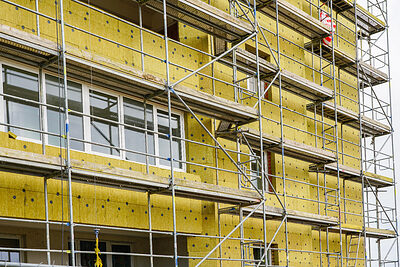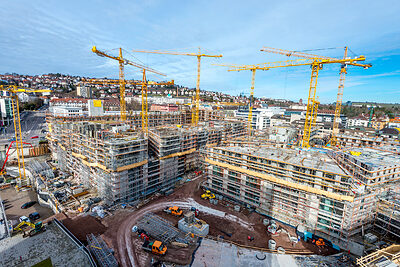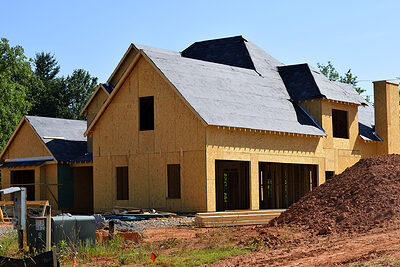The construction industry is a particularly resource-intensive sector of the economy: this sector is responsible for a good third of energy consumption andCO2 emissions in Germany and contributes more than half of the German waste produced. Achieving the goal of energy- and resource-efficient construction for a climate-neutral and health-friendly building stock by 2050 therefore requires diverse and interconnected strategies in the building sector. Sustainable concepts that take into account different forms of use, functionalities and modularization provide the first forward-looking design ideas here.
For this reason, the DBU is committed to the sustainable construction of the future in its funding theme Climate and Resource Efficient Building. In addition to the exemplary development of the potential of energy-optimized building stock and environmentally compatible urban densification, sustainable concepts and technological approaches are to be developed and tested in new construction as the primary innovation driver.
However, a sustainable building sector cannot be achieved in the area of individual buildings alone. Likewise, the action level of the neighborhood must be brought into focus. In metropolitan areas in particular, thoughtful and resource-conserving neighborhood development that takes local needs into account is of central importance. The development of a synergetic, sustainable neighborhood concept deals with a wide range of aspects: Climate protection, energy supply, land use planning, mixed use, infrastructure, air quality, and biodiversity issues. With the funding topic of energy- and resource-saving neighborhood development and renewal, the DBU is dedicated to holistic approaches that consider ecologically, economically and socially sustainable living spaces in an overall concept.


